How can I view the metadata(data dictionary) for a Microsoft Access 2013 table?
4 Answers
If you want to retrieve the access database metadata this may be helpful:
Every microsoft access database contains a system table named MSysObjects. This tables contains this database metadata. You can get all objects with there creation date and last update date.
You can list all Objects in an Access Database using the following query:
SELECT Name, DateCreate, DateUpdate,
iif(LEFT(Name, 4) = 'MSys','System Table',
iif(type = 2,'System Object',
iif(type = 3,'System Object',
iif(type = 8,'System Object',
iif(type = 4,'Linked Table (ODBC)',
iif(type = 1,'Table',
iif(type = 6, 'Linked Table (MsAccess/MsExcel)',
iif(type = 5,'Query',
iif(type = -32768,'Form',
iif(type = -32764,'Report',
iif(type=-32766,'Macro',
iif(type = -32761,'Module',
iif(type = -32756,'Page',
iif(type = -32758,'User','Unknown')))))))))))))) as ObjectType
FROM MSysObjects WHERE LEFT(Name, 1) <> '~'
If you don't want to show system objects you can add these conditions to the where clause:
AND LEFT(Name, 4) <> 'MSys' AND Type IN (1, 5, 4, 6, -32768, -32764, -32766, -32761,-32756,-32758)
Also i created an application that retrieve data from access database, Which i created a new Git-repository for it
- 36,233
- 13
- 65
- 124
In Access 2007 and later (2007, 2010, 2013) the "Database Documenter" is under the Database Tools tab, in the Analyze group.
- 141,631
- 28
- 261
- 374
Using, VBA, the DAO.TableDef object may help you:
dim db as DAO.Database, tbl as DAO.TableDef
dim f as DAO.Field
set db = currentdb() ' Connect to current database
' Loop through each table in the database
for each tbl in db.tableDefs
debug.print "Table name: ", tbl.Name
' Loop throuth each field in the table
for each f in tbl.Fields
debug.print "Field: ", f.Name
next f
next tbl
This is quite over simplified, but you can get all the properties of the table and its fields.
Check:
- 20,547
- 13
- 65
- 83
Late to the party, but this is what I did. It's not pretty but it gets the job done.
Sub GenerateDataDictionary()
Dim db As DAO.Database
Dim tdf As DAO.TableDef
Dim fld As DAO.Field
Dim rs As DAO.Recordset
Dim DataDictionaryTableName As String
DataDictionaryTableName = "__DataDictionary"
Set db = CurrentDb
If Not TableExists(db, DataDictionaryTableName) Then
Set tdf = db.CreateTableDef(DataDictionaryTableName)
With tdf
.Fields.Append .CreateField("TableName", dbText, 255)
.Fields.Append .CreateField("Position", dbLong)
.Fields.Append .CreateField("ColumnName", dbText, 255)
.Fields.Append .CreateField("Type", dbText, 255)
.Fields.Append .CreateField("Size", dbLong)
.Fields.Append .CreateField("Description", dbMemo)
End With
db.TableDefs.Append tdf
Application.RefreshDatabaseWindow
Else
db.Execute "DELETE * FROM " & DataDictionaryTableName, dbFailOnError
End If
Set rs = db.OpenRecordset(DataDictionaryTableName)
For Each tdf In db.TableDefs
If tdf.Name = DataDictionaryTableName Then GoTo SkipTable
If Left(tdf.Name, 1) = "~" Then GoTo SkipTable
If Left(tdf.Name, 4) = "MSys" Then GoTo SkipTable
If Left(tdf.Name, 4) = "USys" Then GoTo SkipTable
If tdf.Connect <> "" Then GoTo SkipTable
Select Case tdf.Name
Case "Version", "VersionDetail"
GoTo SkipTable
Case Else
For Each fld In tdf.Fields
With rs
.AddNew
!TableName = tdf.Name
!Position = fld.OrdinalPosition
!ColumnName = fld.Name
Select Case fld.Type
Case dbDate: !Type = "Date/Time"
Case dbText
!Type = "Short Text"
!size = fld.size
Case dbBoolean: !Type = "Yes/No"
Case dbMemo: !Type = "Long Text"
Case dbByte: !Type = "Int8"
Case dbInteger: !Type = "Int16"
Case dbLong: !Type = "Int32"
Case dbSingle: !Type = "Single"
Case dbDouble: !Type = "Double"
Case dbDecimal: !Type = "Decimal"
Case dbCurrency: !Type = "Currency"
End Select
On Error Resume Next
!Description = fld.Properties("Description")
On Error GoTo 0
.Update
End With
Next fld
End Select
SkipTable:
Next tdf
MsgBox "Done"
End Sub
Function TableExists(db As DAO.Database, TableName As String) As Boolean
Dim tdf As DAO.TableDef
For Each tdf In db.TableDefs
If tdf.Name = TableName Then
TableExists = True
Exit Function
End If
Next tdf
TableExists = False
End Function
- 115
- 1
- 7
-
What version of MS Access did you use for this code? In Microsoft Access 2021, I get an error for the call to the 'TableExists' function. – user3276159 Mar 20 '23 at 17:54
-
My apologies. I have updated the code to add the TableExists function. – Dennis Jones Mar 21 '23 at 18:31
